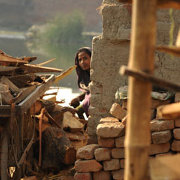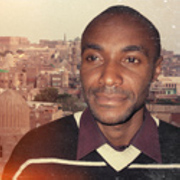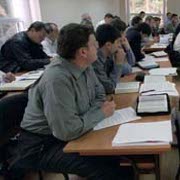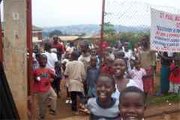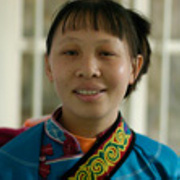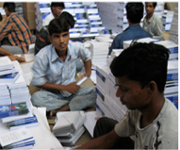 |
| (Image Yida Refugee Camp courtesy UNITAR.org) |
Parts of Africa are experiencing that in an unbreakable vicious cycle of violence that has become a culture. South Sudan is no exception. The world's newest country, its birth didn't come quickly or peacefully.
After more than two decades of war, with two million dead and four million people displaced, literacy levels are low. And the war is not over for all. Hundreds more refugees are still arriving in the camps, and there are no schools. An entire nation has been traumatized, and the devastating effects of this generational trauma are sure to impede the stable and healthy recovery process of this nation.
But a ministry is part of trying to change that by sowing the seeds of peace through story-based trauma-healing workshops in South Sudan's refugee camps. The Seed Company, in partnership with the Bible Society in South Sudan and Samaritan's Purse, launched a trauma-recovery program.
Its emphasis on the recovery--from a physiological level rather than a psychological one--allows the program to be used across cultural boundaries.
There was an overwhelming response by the Sudanese people, and many had requested training in trauma awareness and a recovery methodology.
Mark Kordic with The Seed Company says, "When we've seen teenagers being forced to do unspeakable acts of violence, families separated, death and destruction and rape and other things occurring, our partners on the ground said, ‘We must offer hope for these families--especially the children.'"
That brought out a clear need, especially when the youngest survivors weren't doing well. Kordic asks, "How in the world can you process this when you're eight years old?"
Another challenge, he says, is, "How do we reach out to them in a language that they understand. The challenge is: there are 50 language groups in this refugee camp of 70,000 people."
The Seed Company started the first training in seven of the groups that have no Scriptures in their own language. "We'd love to reach out to a dozen more languages, and we can do that as people support these trauma-healing workshops. We'd love to reach more of the 70,000 people that are really suffering from unspeakable abuse."
The initial teams translated and memorized six Bible stories, five real-life stories, and six Bible verses which were set to music. In January, they began regular trauma-healing listening groups in the camp, where they told stories and led discussions about how God can heal pain.
As a result of this initial offering, plus a second training in the summer, Kordic says now "20 Christian congregations, amazingly, have been developed among seven of the 50 language groups as people respond to the stories from the Scripture in a language that they understand best."
Surviving war and war atrocities is huge. In hindsight, it's really the first step on a long road to recovery. Having a shoulder to cry on, so to speak, and someone who can offer hope makes a huge difference. "It involves song, it involves dance. It involves storytelling. And as folks go through the workshop experience, in which Scriptures are brought to life in their native language, heart language, it speaks to the way that they've always communicated."
In fact, as Christmas approaches, there's a clear difference in parts of the camp where Christ's name is known. Kordic describes the scene. "If you can think of the horizon of a refugee camp and stringing colorful cloth on clotheslines, it gives you a little glimpse of the change from a fear-based refugee experience to one that at least they can look forward to hope because Jesus has entered into their life."
There's so much more that can be done. So far, the trauma program is only available in seven languages. The Seed Company wants to expand that to cover all 50 language groups in the camps. Kordic acknowledges the scope of the project, but says everyone doing their own part will help it succeed. "There's never been a greater acceleration of the Great Commission than right now. Today. I would just encourage folks to consider joining the race to end Bible poverty."

